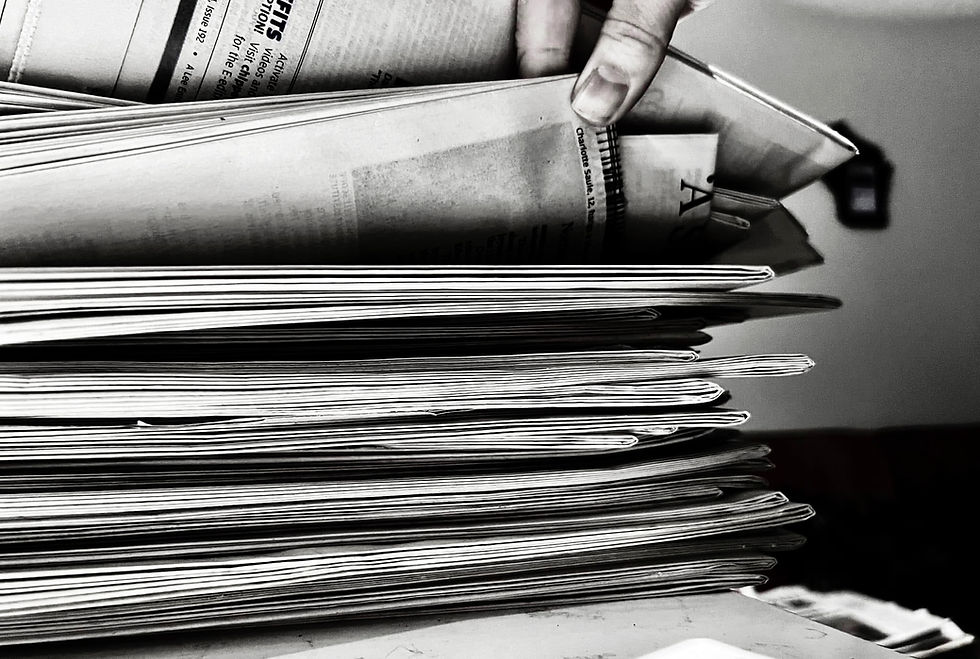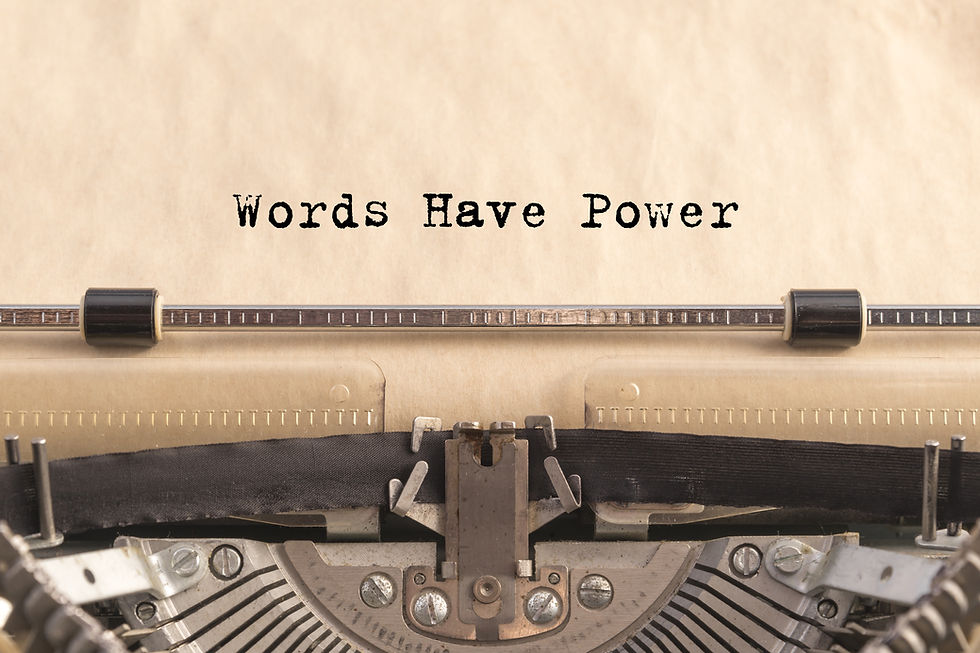Public Statement from Journalist Audrey Korte: AI-Incident at the Wisconsin State Journal
- Sep 9, 2025
- 5 min read
Updated: Sep 10, 2025
FOR IMMEDIATE RELEASE
Public Statement from Journalist Audrey Korte: AI-Incident at the Wisconsin State Journal
Sept. 8, 2025
Madison, WI — Many weeks after the biggest mistake of my career, I’m finally ready to speak publicly on the issue. I’ve taken time to gather my thoughts, investigate the problem, and document my actions in full. I want to own my part, offer a sincere apology, and explain what happened.
As a reporter at the Wisconsin State Journal, I submitted a story that contained multiple factual inaccuracies and a fictitious source created by AI. I used the AI program installed earlier this year by the company on employee computers, intending to tighten up the writing, check AP Style, spelling, and grammar. What was submitted, however, was not correct. I was terminated for the mistake.
I take responsibility for what I turned in and for failing to catch the errors during my read-throughs.
I did not understand that AI could introduce fictitious or inaccurate information. But it did. I should never have used AI that I was untrained in, especially in a moment of crisis.
My responsibility was to ensure the accuracy and integrity of the article before submission. I am sincerely sorry for the errors.
Context matters.
And thus far it has been missing from the conversations, reporting and rumors swirling around this incident.
My boss and their boss were not in the newsroom that day. Multiple reporters were on vacation. I was filling in for others covering topics I was not familiar with in a newsroom I just arrived at, in a city I do not know yet.
I started my work with the company in May, remotely, and arrived in Madison on June 7. I was let go July 17. Training and supervision lacked clarity and organization.
Twice I was given inaccurate information about the documents I was writing about by a city employee. That impacted the reporting. I was assured there were two proposals I needed to cover by this person. There were three.
I turned the piece into an editor. It was posted within minutes.
That week I was dealing with severe insomnia—an ongoing battle and documented health condition since being diagnosed with late-stage Lyme disease. I had slept just 6.5 hours between Monday and Friday, when the article was submitted.
That level of sleep deprivation is, I believe, how I misjudged the final draft. It’s the only way I can understand how I mistook AI rewrites for my own work.
I had read about 170 pages on the subject I was reporting—quickly, under deadline pressure. I didn’t realize the AI tool could alter facts I provided and I wasn’t looking for this type of error when I was reading it later.
I was checking tone, transitions, structure—not verifying whether facts had changed in my last read through. I believed the content was correct. It sounded right after immersing myself in the topic.
I’m not placing blame or making excuses. I also won’t undersell how badly the article turned out.
AI introduced fictional elements: a speaker who doesn’t exist, from a non-existent business, on a street that isn’t real, with a quote that was fabricated.
It also changed a number of important details about the proposals I was covering, turning the real reporting into junk. A substantial amount of the information was wrong.
After a deep dive into everything I did in the days leading up to publication, I am convinced the AI presented this quote as an example of something that would strengthen the article. I am happy to explain this further.
I’ve since learned about what is called an “AI hallucination”—a term I hadn’t heard before, but it fits.
I believed the AI program was working only from the information I had provided—not pulling from the broader online universe. I just wanted cleaner and more concise writing.
I was out of my depth. I see that now. I own it.
So how did I miss a quote from someone I never interviewed? That’s the question I would ask next.
I had pulled quotes from earlier newsroom reporting— written before I arrived in Madison in June, setting them aside to add color to the article.
I remember thinking I was lucky to have found such a perfect quote as I reviewed the final draft. I was certain it came from earlier coverage. I was wrong. The real quote did not get included and the fake one did. I assume AI replaced the real one.
I did not invent anything.
It’s a shock to me now, but the reality is I didn’t recognize the differences between the final article, greatly changed by AI, and my own writing. That’s what happens when you’re running on too little sleep, too much anxiety, and pushing to meet a deadline.
The story was removed days later when the errors were uncovered.
Initially, we were just trying to locate the quote. I spent half a day searching, convinced I’d find the man who’d been quoted and the publication it came from. When that became impossible, the larger issues came into focus.
I was honest throughout the day and eager to understand what happened for everyone’s sake.
After that, things got tougher.
I was terminated without the opportunity to give a full account or take ownership.
I had prepared a full account, pages and pages of documentation, a sincere apology, and a plan to prevent future errors to bring to the staff the morning after this was discovered. I also had a list of questions including about the confusion over what company policy on AI-use was. I was called at 8 a.m. that day and terminated so these were never part of the conversation.
I was never allowed to explain what happened to supervisors, colleagues or readers. To my knowledge colleagues still do not know what happened to me or the article.
I was ready to face the consequences but hoped to turn this embarrassment into meaningful reporting—on AI, workplace health, accommodations for invisible disabilities, and more. I wanted to redeem myself.


You don’t seem to understand that firing you in these circumstances IS an action protecting the spirit of real journalism in a crumbling industry. Your firing helps keep journalism alive and sacred. It doesn’t matter if you have valid excuses or if theoretically you would truly never make a mistake like this again.
Unfortunately this is life: sometimes a one-off, honest mistake changes our course drastically and forever. Life is about learning and reacting with grace. Doubling down and refusing to surrender to this hard lesson is only going to crystallize negative behavioral patterns within your psyche and body, and you’re just going to be presented over and over again with the same thematic lesson (accepting what you cannot change)…
As someone who graduated with a journalism degree in 2006 and has made extensive use of that degree throughout his career ... no, the context does not matter, in any way, shape or form. I understand battling a chronic illness, as I face the same fight myself (chronic kidney disease and necrotizing pancreatitis). And, believe me, as the former editor of an alternative publication very similar to Madison's Isthmus, I more than understand how sleep deprivation and fatigue can compromise the quality of a writer or editor's work. But all that being said, even though you continue to profess contrition and claim ownership of what happened, you still persist--first in the Isthmus interview, and now here--in deflecting the lion's share of the…